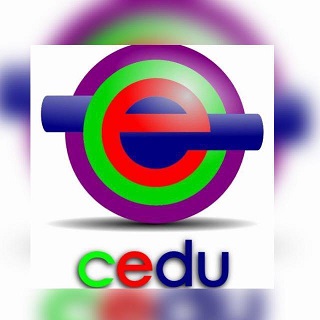TECHNOLOGY, SOCIETY AND EDUCATION IN BRAZIL: SOME CONTEMPORARY REFLEXÕES
Keywords:
Evolution, Society, Technology, EducationAbstract
This research seeks a dialogical relationship based on the historical analysis of technological evolution, educational issues and the functioning of society itself. In the 20th century, the world experienced the so-called Third Industrial Revolution, accelerating communications, contacts and marked by technical and scientific advances. Technology, as a way for human beings to improve their lives, is increasingly present in different social environments - and education has a lot of prominence in this regard. Understanding more about this reality is in the scope of this article. The methodological paths used are the review of the literature on the themes and the critical analysis of the variables inherent to the discussion. As conclusions, the growth of technologies in social mediation, the improvement of distance education and hybrid teaching are expanding in the national context.
Downloads
References
BUCKINGHAM, D. Beyond technology: rethinking learning in the age of digital culture. Em J. Pettersen (Org.), Youth Media Democracy: Perceptions of New Literacies (pp. 43-57), 2009. Dublin: Centre for Social & Educational Research.
BUCKINGHAM, D. Cultura digital, educação midiática e o lugar da escolarização. Educação e Realidade, 37-58, 2010. Disponível em www.seer.ufrgs.br/index.php/educacaoerealidade/article/view/13077/10270. Acesso: 22 jan. 2021.
CALVINO, I. Coleção de Areia. São Paulo: Companhia das Letras, 2010.
CASTELLS, M. Sociedade em rede. São Paulo: Paz e Terra, 1999.
COSTA, A. M. da. 1890-1914: no tempo das certezas. São Paulo: Companhia das Letras, 2000.
DZIEKANIAK. G. e ROVER, A. Sociedade do conhecimento: Características demandas e requisitos. DataGramaZero. Revista de Ciência da Informação, vol.12, nº 5, Out 2011.
GABRIEL, M. Marketing na era digital. São Paulo: Novatec, 2010.
GHEMAWAT, P. Mundo 3.0: como alcançar a prosperidade global. Porto Alegre: Bookman, 2012.
HARARI, Y. N. 21 lições para o século XXI. São Paulo: Companhia das Letras, 2018.
INNES, B; WILSON, C. Learning Machines. NY Times, 2010. Disponível em https://archive.nytimes.com/query.nytimes.com/gst/fullpage-9403E2DE153BF93AA2575AC0A9669D8B63.html. Acesso em: 20.jan.2021.
KENSKI, V. M. Aprendizagem mediada pela tecnologia. Revista Diálogo Educacional, 4(10), 47-56, 2003.
LALUEZA, J.; CRESPO, I.; CAMPS, S. As tecnologias da informação e da comunicação e os processos de desenvolvimento e socialização. Em C. Coll, & C. Monereo (Orgs.). Psicologia da Educação Virtual: aprender e ensinar com as tecnologias da informação e da comunicação (N. Freitas, Trad., pp. 47-65). Porto Alegre: Artmed, 2010.
LÉVY, P. As tecnologias da inteligência. Rio de Janeiro: Ed. 34, 1993.
LÉVY, P. Cibercultura. São Paulo: Editora 34, 1999.
LÉVY, P. A inteligência coletiva: por uma antropologia do ciberespaço. 3.ed. São Paulo: Loyola, 2000.
McLUHAN, M. Os meios de comunicação como extensões do homem. São Paulo: Cultrix, 2007 (primeira publicação em 1969).
PEIXOTO, J. A inovação pedagógica como meta dos dispositivos de formação a distância. EccoS – Revista Científica, São Paulo, v. 10, n. 1, p. 39-54, jan./jun. 2008.
SANTAELLA. L. A crítica das mídias na entrada do século XXI. In: Prado, J. L. R. (Org). Críticas das práticas midiáticas. São Paulo: Hacher, 2002.
SILVA, M.; PESCE, L.; ZUIN, A. Educação on-line: cenário, formação e questões didático-metodológicas. Rio de Janeiro: Wak, 2010.
TORI, R. Educação sem distância: as tecnologias interativas na redução de distâncias em ensino e aprendizagem. São Paulo: Senac, 2010.
Published
How to Cite
Issue
Section
License
Copyright
The submission of originals to Cenas Educacionais (Educational Scenes - CEDU) implies the transfer, by the authors, of the publication rights. The copyright for the manuscripts published in this journal is the author(s), with CEDU rights over the first publication. Authors(s) may only use the same results in other publications by explicitly indicating CEDU as the means of the original publication.
Creative Commons License
Except where otherwise specified, the terms of a Creative Commons Attribution-ShareAlike 4.0 International License license apply to the material published in this journal, which allows unrestricted use, distribution and reproduction in any medium provided the original publication is correctly cited.






 This work is licensed with a License
This work is licensed with a License 